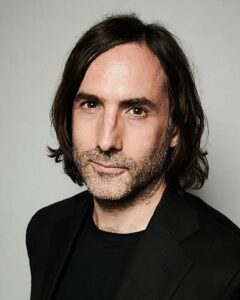I started reading the Booker shortlist as an annual project in the 1980s. I saw it a personal, horizon-widening exercise. As a reader, as with so much else in life, it’s all too easy to like what you know and know what you like. And some of the discoveries were wonderful. I first read, for example, David Lodge, Carol Shields and Peter Carey because one of their titles was shortlisted. I then went on and read everything else of theirs I could lay hands along with their new titles as they appeared.
In early 1989 when Salman Rushie and The Satanic Verses hit the headlines because of the fatwa demanding his execution for blasphemy, I was the only person I knew who had actually read it. it had been shortlisted for Booker the previous autumn. It didn’t win although Chairman of the Judges, Michael Foot, made it clear that he thought it should have done. Personally, I didn’t enjoy it very much but took the view as that if you don’t like it, or don’t think you will, then don’t read it. But nothing gives you the right to stop, or try to stop, other people reading a book – any book. Of course, though, I am not a religious extremist and see things differently.
Another good reason for reading those shortlists was that I was teaching secondary English to GCSE and A Level, and it meant I could talk to my students about current titles as I tried to encourage them to follow my example and try books which were not necessarily within the habitual comfort zone – because therein can often lurk new treasures. I always regarded developing wider reading as almost as important as getting everyone through the exam although, naturally, I did that too.
Since I stopped teaching to become a full-time writer in 2004 I have got out of the Booker shortlist habit although I have usually read the winner and sometimes one or two of the others if I liked the sound of them. This year, however, the final announcement is not until 26 November. The shortlist was announced on 21 September which meant there was full two months to get acquainted with the books. So I did.
It’s strong, beautifully diverse list:
Study for Obedience by Sarah Bernstein (Canadian)
If I Survive You by Jonathan Escoffery (American)
The Other Eden by Paul Harding (American)
Prophet Song by Paul Lynch (Irish)
The Bee Sting by Paul Murray (Irish)
Western Lane by Chetna Maroo (British Indian).
I found things to like in them all but the one which moved, shocked and haunted me most was Prophet Song.
We’re in Ireland in the present day when a totalitarian regime is elected. Changes are small to start with, as ordinary citizens’ rights begin to disappear. It made me think, initially, of the pandemic, lockdown and government emergency edicts. Of course the situation rapidly gets worse and you know that nothing is going to get any better for the family at the heart of it: Eilish, a scientist, her husband Larry who’s a teacher/trade unionist and their children Mark, Molly, Bailey and Ben. Suddenly it’s a world of torture, death, sudden disappearance, corruption and suffering. And the arrival of the rebels to overturn the regime doesn’t make any discernible difference for families on the ground. What Lynch has done is to retell the story of Syria in a European context and I’m deeply ashamed of what it says about me that I found this much more disturbing than anything I’ve ever read about horrendous atrocities thousands of miles away.
The depiction of Eilish’s despair and declining mental health is masterly. I suffered every shred of the horror with her – especially when she goes in search of 12-year-old Bailey. That will stay with me for a very long time. The novel ends in bleak, ambiguous hope, tempered with horror and anxiety.
I read it in just a couple of days – it’s very compelling. On the first night I slept for an hour, then woke up instantly alert because I thought sometime was flashing a torch and shouting up aggressively from the garden. It took me a few minutes to recognise that I’d been dreaming. Perhaps I shouldn’t read novels as powerful as Prophet Song just before I put the light out but it is testament to its strength.
So this is the book which would get my vote, if I were on the judging panel. I suspect, though, that the prize will go to Sarah Bernstein for Study for Obedience which is original, edgy, topical because its protagonist is Jewish, and written in an unusual style, It just didn’t hit me between the eyes me as much as Prophet Song did.

Next week on Susan’s Bookshelves: Stop Them Dead by Peter James